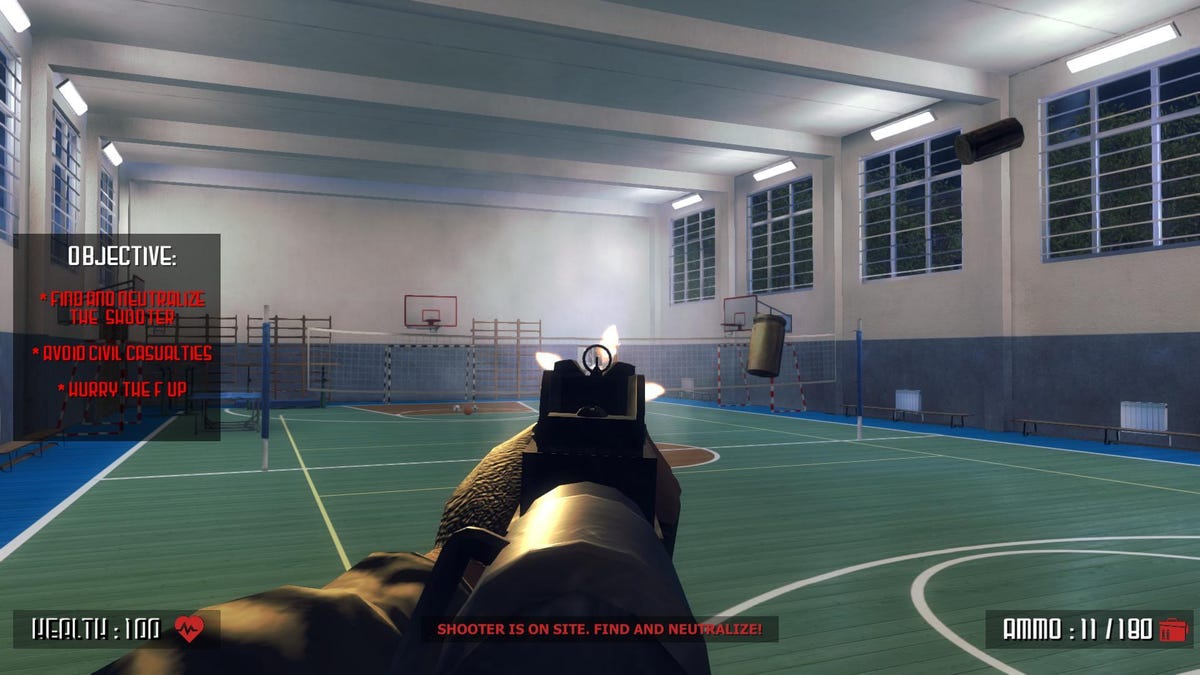Valve is standing by the values that made the internet terrible
Commentary: While the world is figuring out how to moderate and curate content for its audiences, Valve is leaving it up to the user.

You might say we're all living inside a ruinous waking nightmare that spawned from the dream of Web 2.0.
Don't get me wrong: It was a beautiful dream.
Web 2.0. We are all of us producers. With our blogs and our comments and our tweets and our YouTube channels we will democratise content and the algorithms -- those glorious algorithms -- will aid in the process. We will upvote and favourite and like and the wheat will be separated from the chaff.
Magic.
I think we can all agree that Web 2.0 didn't quite work as advertised.
It gave us Minecraft. It gave us Wikipedia, collaborative spaces, online tools. But it also gave us Cambridge Analytica,
Facebook
, Gamergate, incels, toxic communities, Logan Paul wandering into a suicide forest. It gave us Twitter bullying, Kelly Marie Tran harassment campaigns on
Instagram
.
It gave us terrible, opportunistic
video games
about school shootings.
Wednesday, after yanking Active Shooter, a video game where you play as a high school shooter, from its Steam store, Valve made an announcement. In a blog titled "Who gets to be on the Steam Store" Valve discussed the steps it's taking to prevent a video game like Active Shooter from making it to the Steam store in the future.
Its solution is about as Web 2.0 as it gets.
"[W]e've decided," wrote Valve, "that the right approach is to allow everything onto the Steam Store, except for things that we decide are illegal, or straight up trolling."
"Taking this approach allows us to focus less on trying to police what should be on Steam, and more on building those tools to give people control over what kinds of content they see."
In 2018, at this current moment, it seems like a decision out of time. An old-fashioned solution to a problem that literally every single platform on the internet is currently trying to solve. We live in a world where Facebook, Twitter and Instagram are in the process of trying to actively take responsibility for the content produced and posted on their platforms.
Meanwhile, Valve is busy trying to abdicate that responsibility.
Valve thinks you, the user, the fabled content producer of internet days gone by, should be responsible for solving the problems other platform holders are working overtime to solve.
"Valve shouldn't be the ones deciding this," wrote Valve. "If you're a player, we shouldn't be choosing for you what content you can or can't buy. If you're a developer, we shouldn't be choosing what content you're allowed to create. Those choices should be yours to make."
This sounds nice, but it's actually wrong.
Right now most companies who distribute content or product online are in a desperate race to curate. Netflix is trying to predict what you want to watch on TV, Spotify is creating playlists to help you discover new music, Amazon is trying to figure out what you actually want to buy and sell it to you before you even start searching for it.
Curation is literally the future of technology, across all technology.
Curation in the music we listen to, curation in the news we read, curation in the TV we watch, curation in the products we buy.
Curation in video games? No, thanks. We're good. Valve leaves its curation to power users in an opt-in system that is, for the most part, a miserable failure.
Valve's decision, of course, is tied to the broader discourse of free speech and censorship -- a traditional hot button topic for people who purchase and consume video games. "I should be able to play what I want," is a common refrain.
Video game culture gave us Gamergate, which provided the blueprint for the online harassment campaigns Twitter, Instagram and Facebook are currently wrestling with. It all feels connected and tied to this fact: Companies must take responsibility for the content produced on their platforms. If not, that toxicity continues to spread and evolve in their absence.
Everyone is trying to figure this out and we already know the hands-off laissez-faire approach doesn't work.
So what's going on here? Why is Valve moving backwards?
Is it negligence? Is it a funding issue? Is Valve catering to a toxic subset of its community?
Regardless it feels like a backward decision in a world that's trying its very best to move forward.
That doesn't bode well for Steam as a platform.
Fight the Power: Take a look at who's transforming the way we think about energy.
'Hello, humans': Google's Duplex could make Assistant the most lifelike AI yet.

